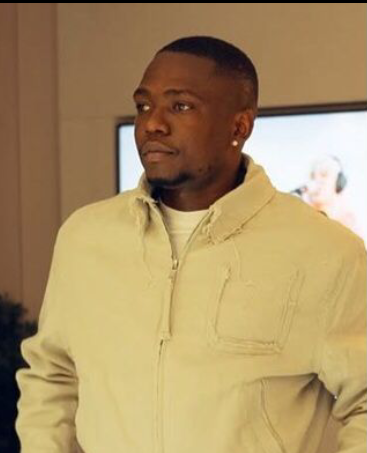
“Nigeria Is Too Toxic, I’m Serious” – Shank Comics Sparks Debate After Returning From the U.S.

Popular Nigerian content creator, Shank Comics, has found himself at the center of a storm on social media after airing his blunt opinion about the state of Nigeria, following a brief stay in the United States. The online comedian, known for his witty skits and satirical takes on Nigerian life, didn’t mince words when he described Nigeria as “too too toxic” — a remark that sent shockwaves through his fan base and ignited a heated back-and-forth among netizens.
The statement was made via a post on X (formerly Twitter), where Shank, whose real name is Adesokan Emmanuel, shared a terse but loaded message: “Nigeria is too too toxic man. Sicking.” The post, which has since gone viral, drew a flurry of reactions ranging from support to criticism. One commenter, Grandson 8 (@Gog Ebu Bay), responded sarcastically, “You never even reach 6months for that side u don Dey enter us,” suggesting that the content creator had barely spent enough time abroad to warrant such a strong opinion.
But Shank wasn’t backing down. In a follow-up, he doubled down on his stance with a brief but pointed reply: “I no jor. I’m serious.”
While his comment may seem like a passing remark to some, it quickly sparked a larger conversation online about the frustrations of young Nigerians, the effects of exposure to life outside the country, and the long-standing societal challenges that many feel are being ignored or normalized. The simplicity of Shank’s words belied the weight of their impact, as they struck a nerve with thousands of Nigerians who resonated with his sentiment, especially those living in or returning from the diaspora.
Shank Comics, who has carved a niche in Nigeria’s ever-growing digital comedy space, is not new to offering social commentary through humor. However, this latest expression was far from humorous—it was raw, direct, and reflective of what many young Nigerians have been saying in hushed tones or within their own circles. The toxicity he alluded to is one that many interpret as a culmination of Nigeria’s economic instability, insecurity, corruption, power struggles, and lack of enabling environments for growth.
His words come at a time when the “Japa” wave—Nigeria’s mass youth emigration movement—has hit record highs. More young professionals, creatives, and students are actively seeking life outside the country, often citing mental exhaustion, safety concerns, poor infrastructure, and the general feeling of being undervalued in their own homeland. To them, Shank’s post was not only relatable but validating.
“I felt that in my chest,” one user wrote under the tweet. “You’re not lying, Shank. This place will drain the joy out of you if you let it.” Another user, however, disagreed with his tone, stating, “It’s fine to be frustrated, but don’t forget the same Nigeria made you who you are. Be constructive, not dismissive.”
This opposing view reflects a common narrative in Nigeria’s discourse, where success stories are often used to diminish or challenge legitimate criticisms of the country. The idea being that if one can ‘make it’ within the chaos, then perhaps the chaos isn’t so bad after all. But critics of this mentality argue that such thinking normalizes suffering and mediocrity, and overlooks the fact that success for many is often achieved in spite of the system, not because of it.
Shank’s decision to publicly express discontent with Nigeria has also reignited the debate around celebrity influence and the responsibilities of public figures. Some believe that as someone with a large following, he should be more careful with his words, especially knowing how easily his statements can shape public opinion. Others argue that he has every right to speak his truth, particularly if his intention is to shed light on the reality that so many young Nigerians endure.
“Let’s not gaslight people just because they’re doing well,” a popular tech influencer tweeted in Shank’s defense. “He didn’t say he hates Nigeria. He said it’s toxic. And if you live here, you know he’s not lying.”
It’s also worth noting that for creatives like Shank Comics, who built their brand around capturing and satirizing Nigerian realities, the contrast of being abroad—even briefly—can be jarring. The difference in social systems, access to opportunities, public infrastructure, and general regard for human dignity can be overwhelming. The result? Culture shock, mixed with gratitude, confusion, and often, frustration.
That frustration is what many believe Shank was expressing. It wasn’t an attack on Nigeria as a people, culture, or heritage, but rather a cry of exasperation at a nation that continues to fail its most vibrant and ambitious demographic. After all, he didn’t say Nigeria was bad, he said it was toxic—a word that implies danger to one’s mental and emotional well-being.
Still, the reactions to his post illustrate the deep divisions in how Nigerians interpret criticism of their country. Some see it as necessary and healing, a mirror held up to a system that needs fixing. Others view it as unpatriotic or elitist, especially when coming from those who now live or spend time abroad. In either case, what’s clear is that Nigeria’s dysfunction remains a deeply emotional subject, one that continues to trigger passionate responses.
As for Shank Comics, he has remained relatively quiet since the initial post, offering no further elaboration on what prompted his comment. Perhaps it was a particular incident, an accumulation of experiences, or simply the stark contrast between his time in the U.S. and his return to Nigeria. Whatever the trigger, his statement has already done what much of his comedy does—spark conversation, introspection, and a flood of reactions.
In the end, whether you agree with him or not, one thing remains indisputable: Shank Comics touched a nerve. And in doing so, he once again reminded Nigerians that sometimes, it takes a few words—honest, raw, and unfiltered—to reveal the depth of the frustration so many have been forced to normalize.


